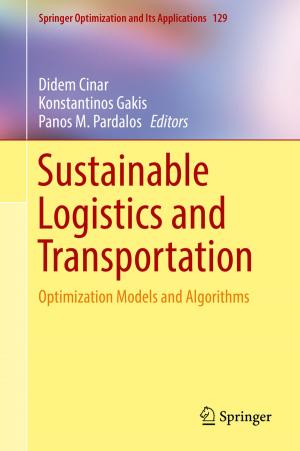The Economics of the Global Environment
Catastrophic Risks in Theory and Policy
Business & Finance, Economics, Theory of Economics, Nonfiction, Science & Nature, Science, Earth Sciences| Author: | ISBN: | 9783319319438 | |
| Publisher: | Springer International Publishing | Publication: | May 18, 2017 |
| Imprint: | Springer | Language: | English |
| Author: | |
| ISBN: | 9783319319438 |
| Publisher: | Springer International Publishing |
| Publication: | May 18, 2017 |
| Imprint: | Springer |
| Language: | English |
This is the first book combining research on the Global Environment, Catastrophic Risks and Economic Theory and Policy. Modern economic theory originated in the middle of the twentieth century when industrial expansion coupled with population growth led to a voracious use of natural resources and global environmental concerns. It is uncontested that, for the first time in recorded history, humans dominate the planet, changing the planet's atmosphere, its bodies of water, and the complex web of species that makes life on earth. This radical change in circumstances led to rethinking of the foundations of human organization and, in particular, the industrial economy and the economic theory behind it. This book brings together new approaches on multiple levels: environmental sustainability requires rethinking in terms of economic theory and policy as well as the considerations of catastrophic risk and extremal events. Leading experts address questions of economic governance, risk management, policy decision making and distribution across time and space.
This is the first book combining research on the Global Environment, Catastrophic Risks and Economic Theory and Policy. Modern economic theory originated in the middle of the twentieth century when industrial expansion coupled with population growth led to a voracious use of natural resources and global environmental concerns. It is uncontested that, for the first time in recorded history, humans dominate the planet, changing the planet's atmosphere, its bodies of water, and the complex web of species that makes life on earth. This radical change in circumstances led to rethinking of the foundations of human organization and, in particular, the industrial economy and the economic theory behind it. This book brings together new approaches on multiple levels: environmental sustainability requires rethinking in terms of economic theory and policy as well as the considerations of catastrophic risk and extremal events. Leading experts address questions of economic governance, risk management, policy decision making and distribution across time and space.















